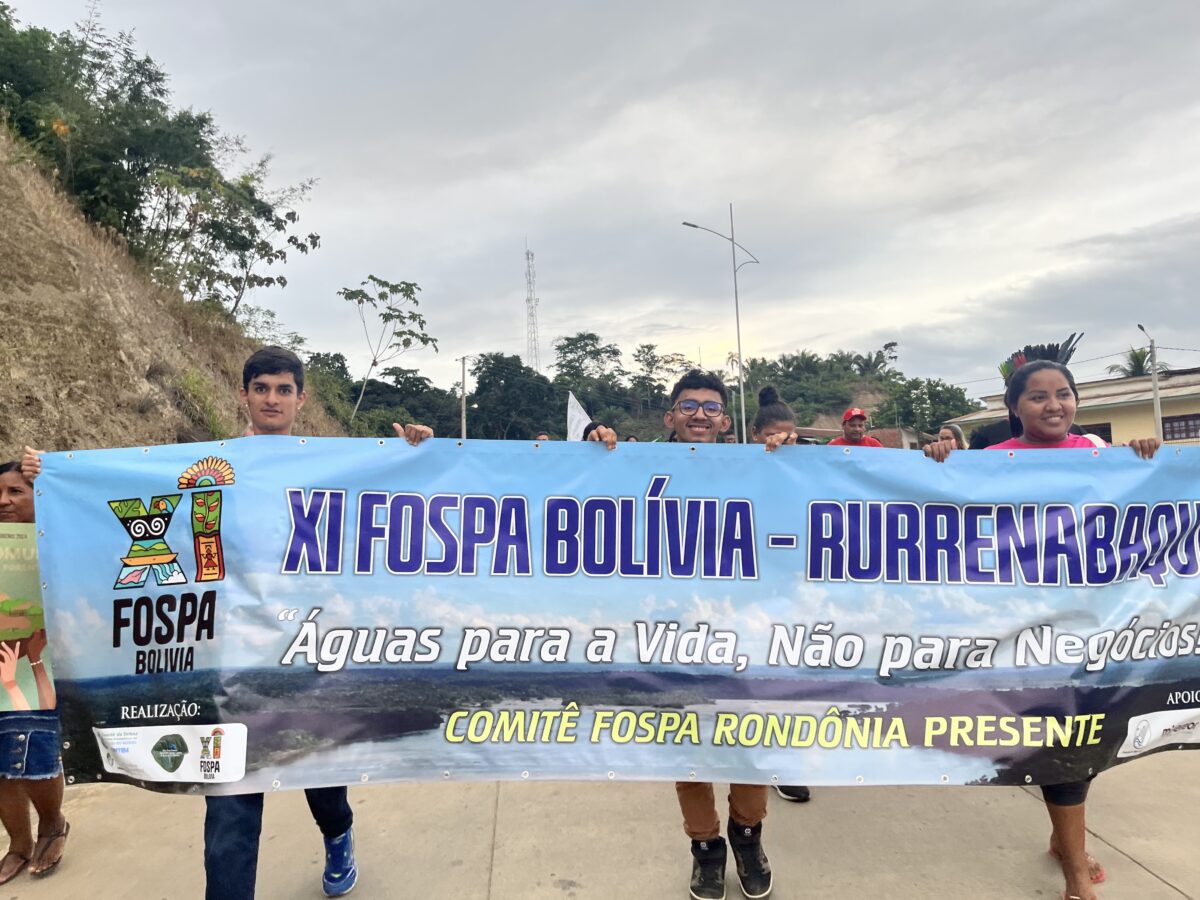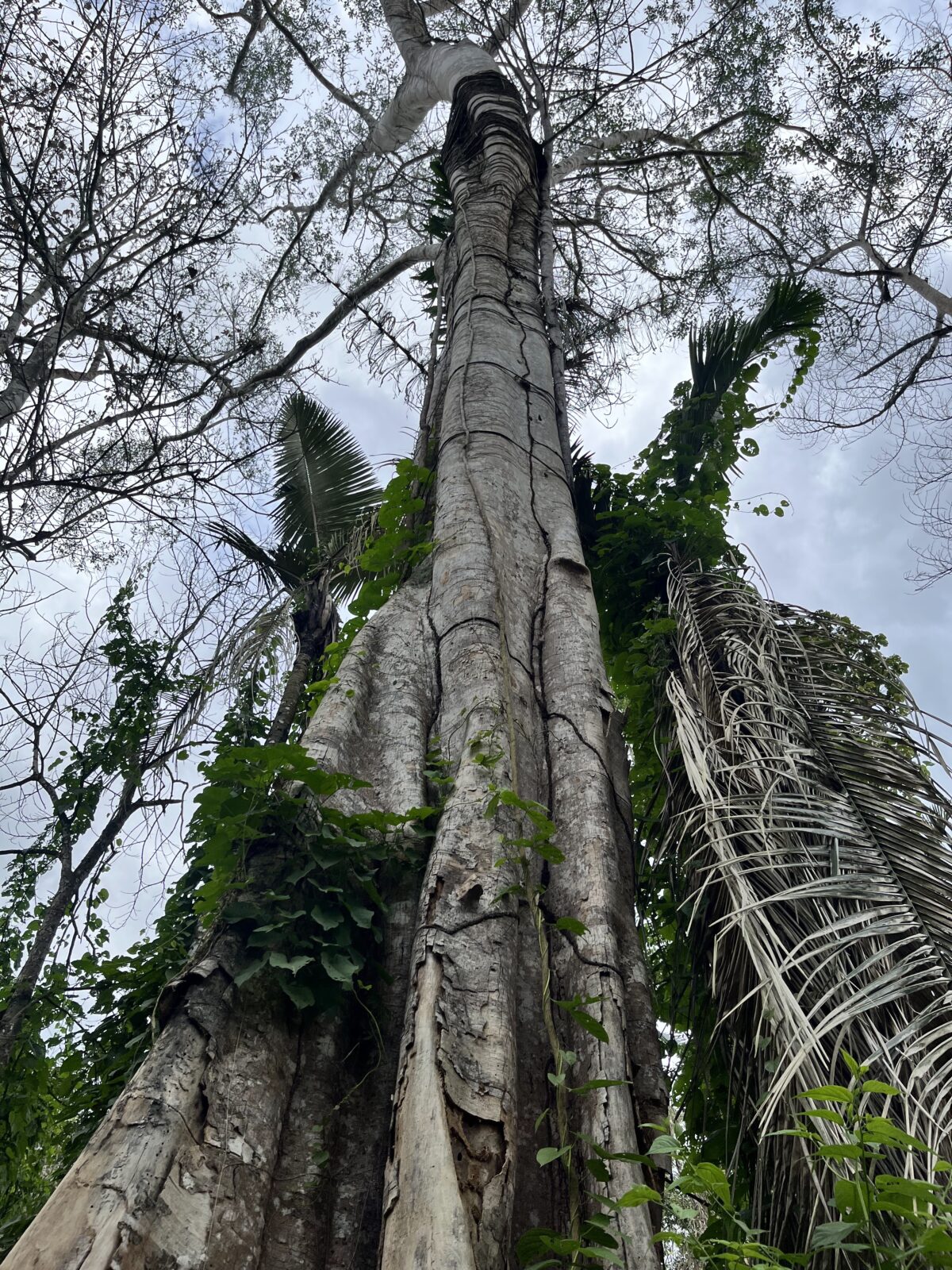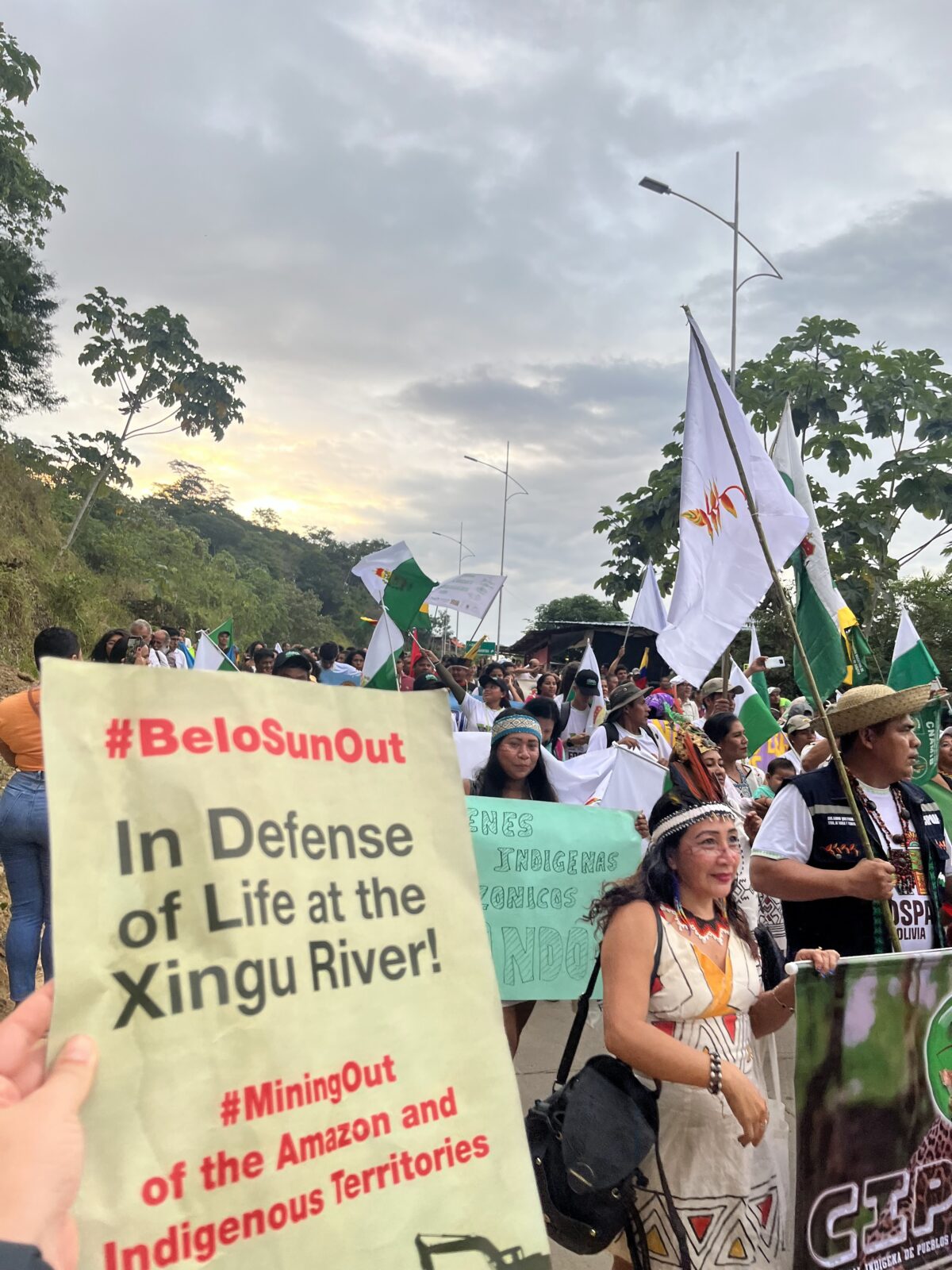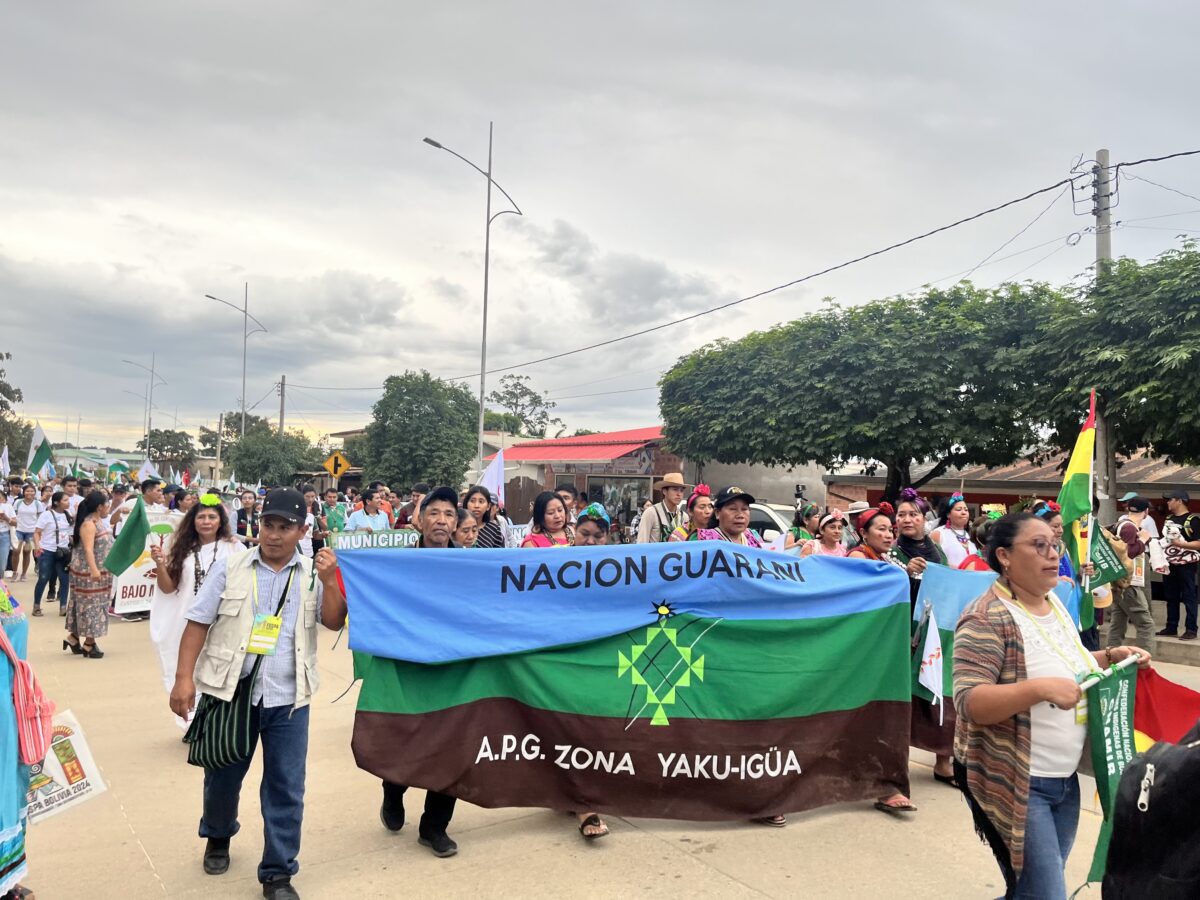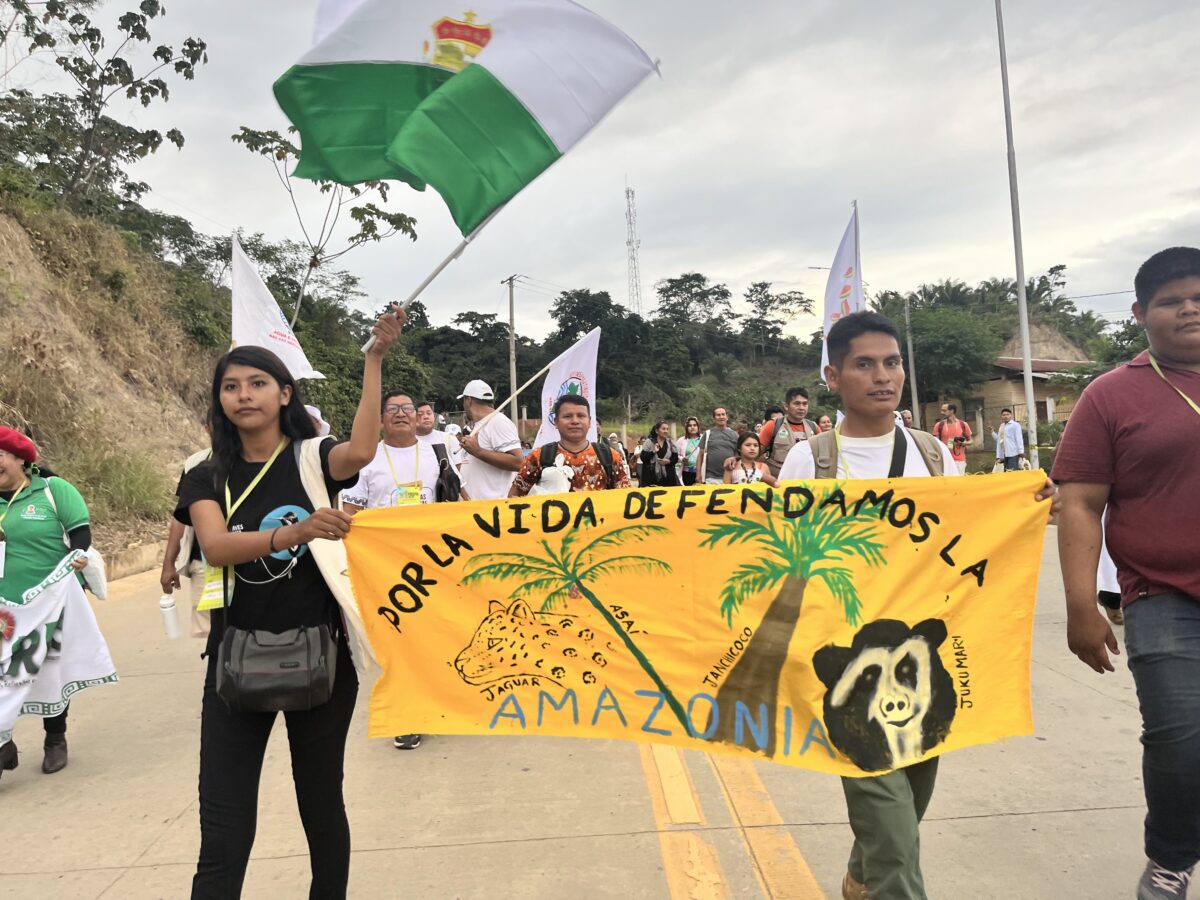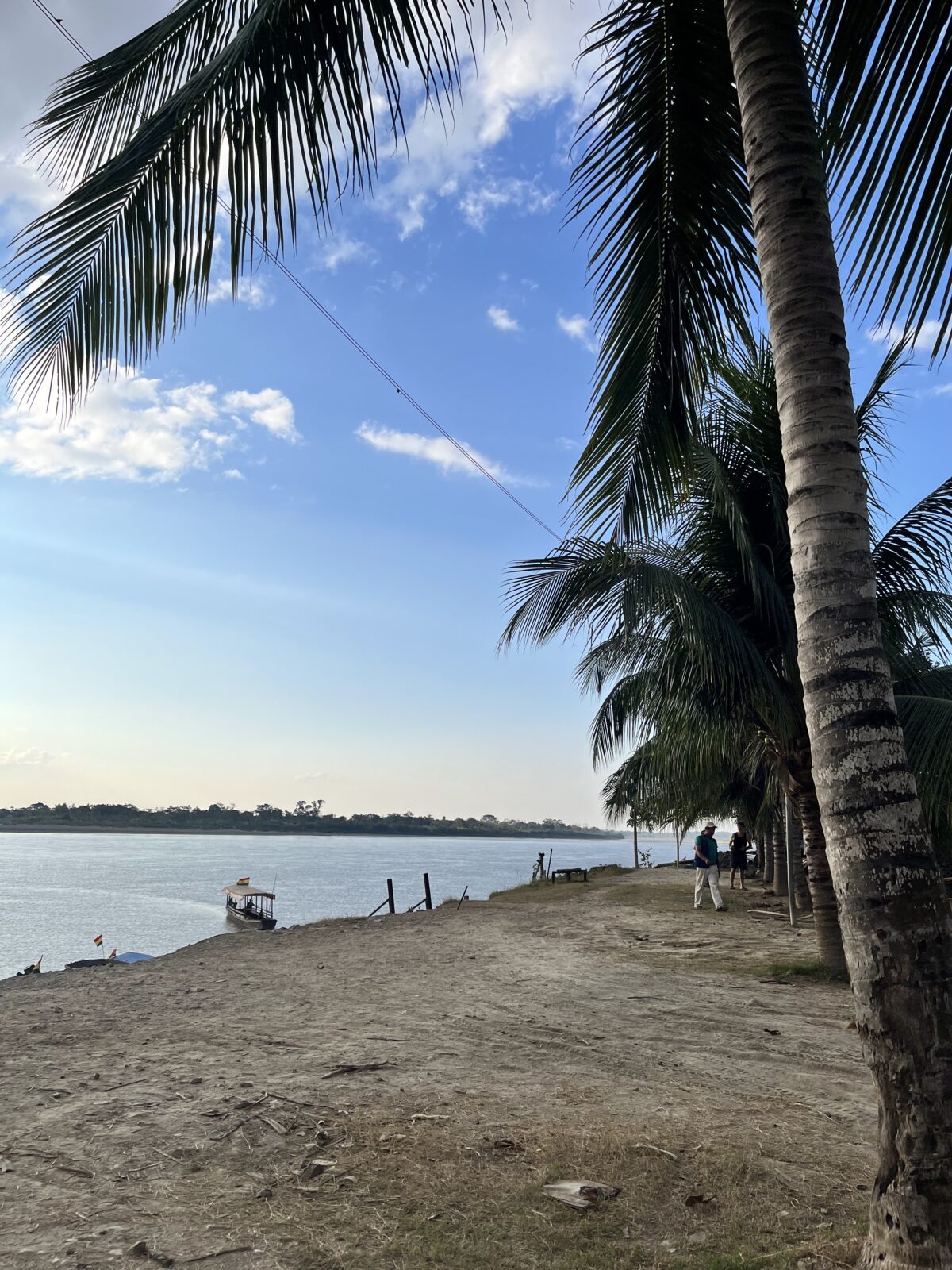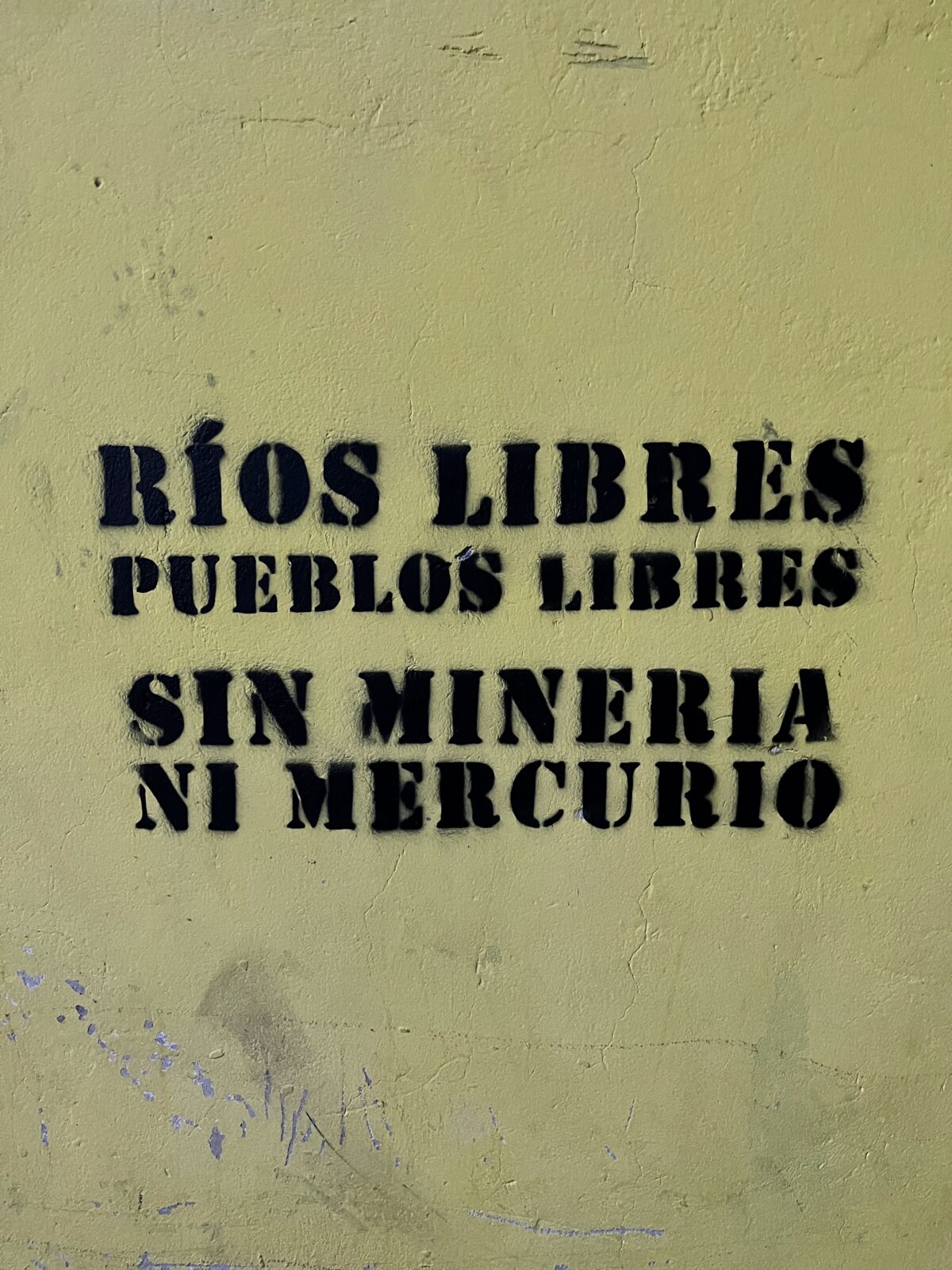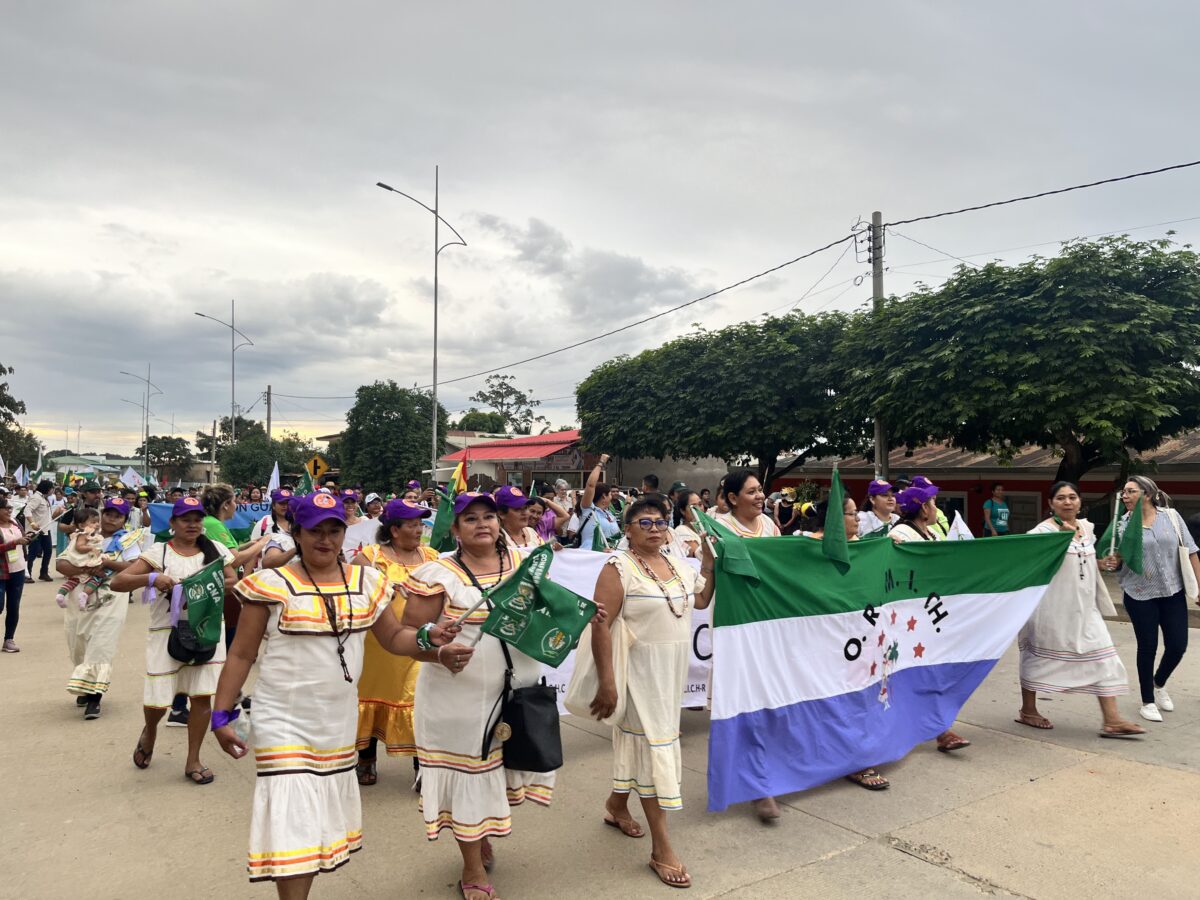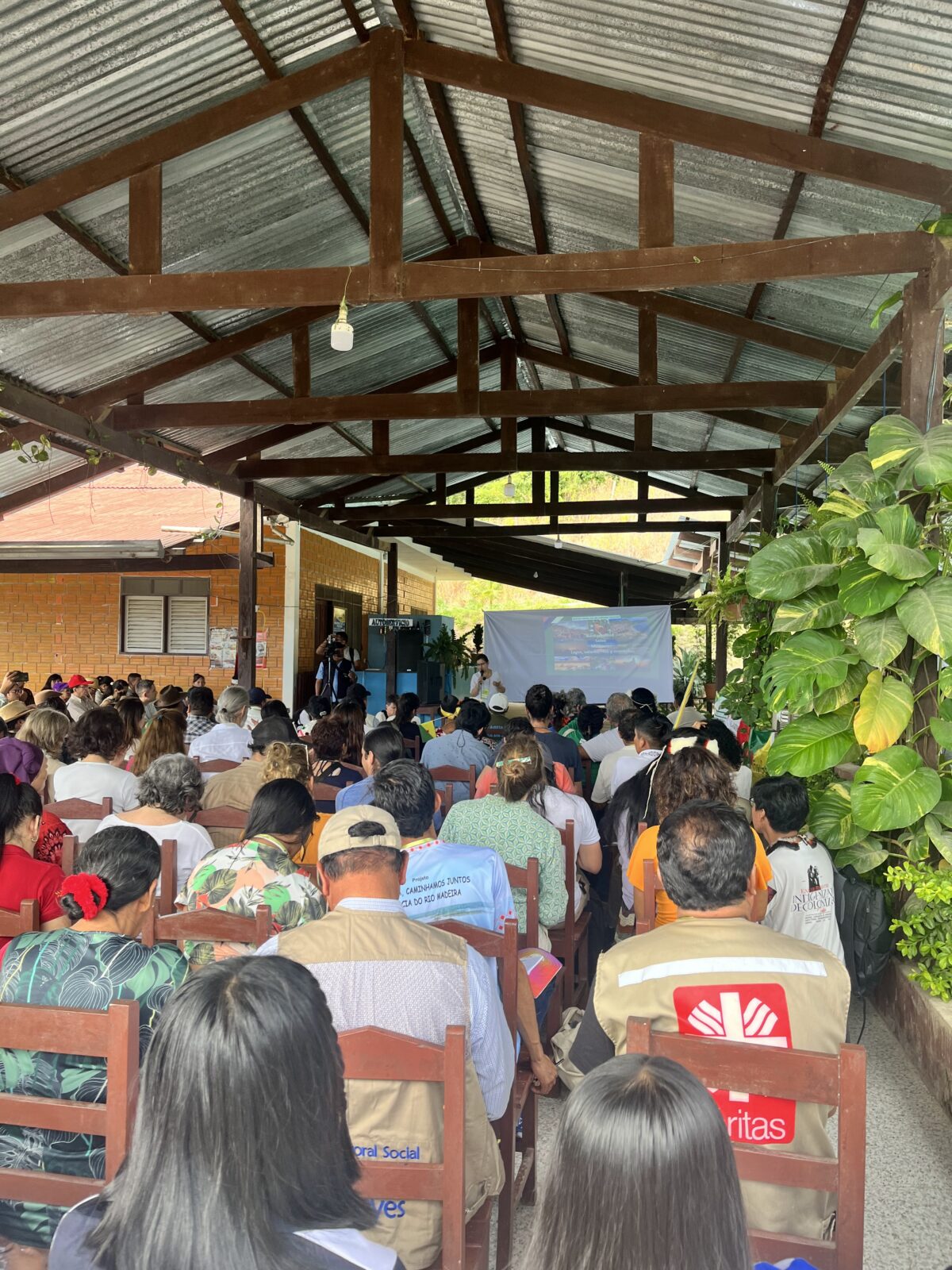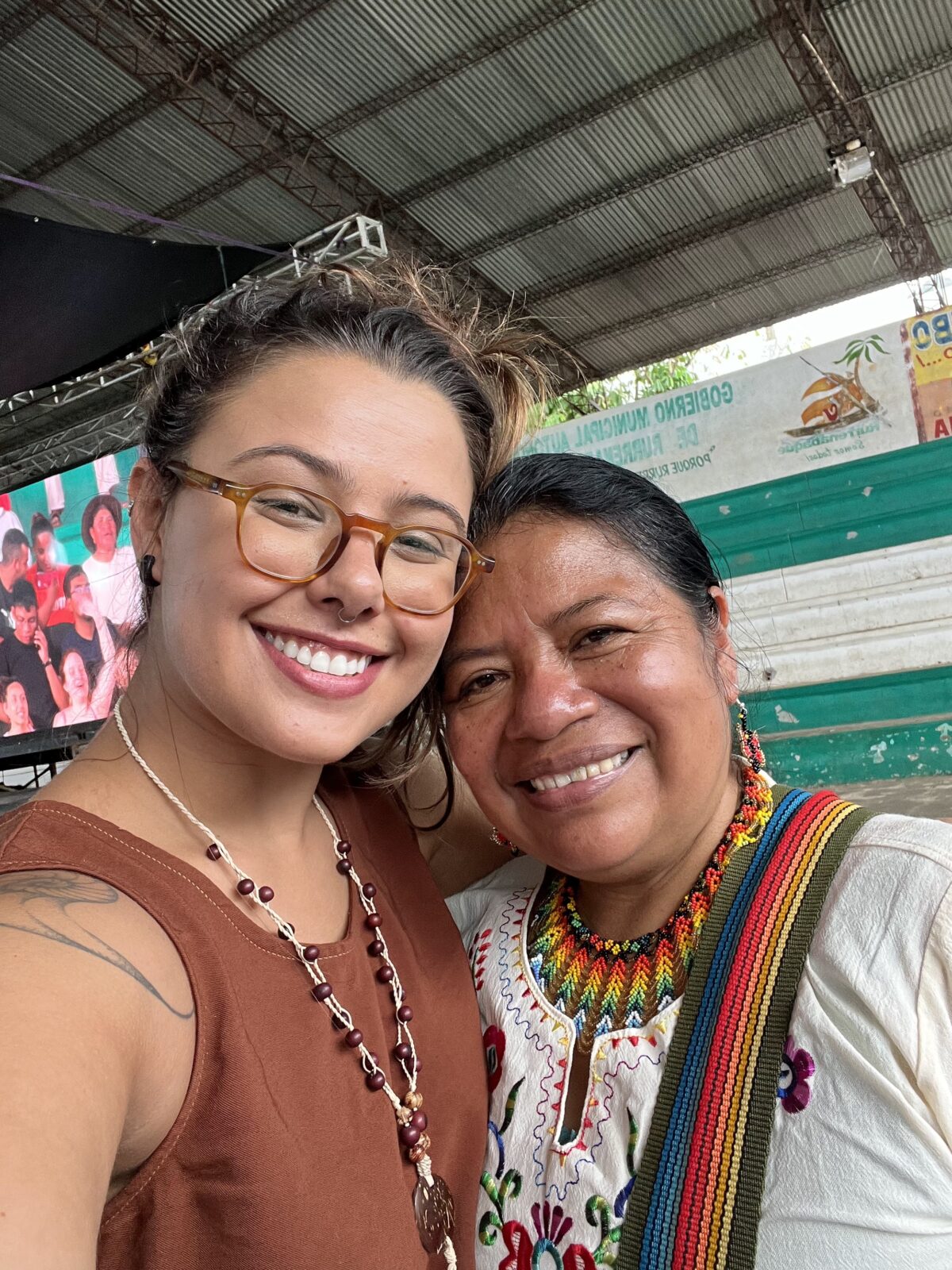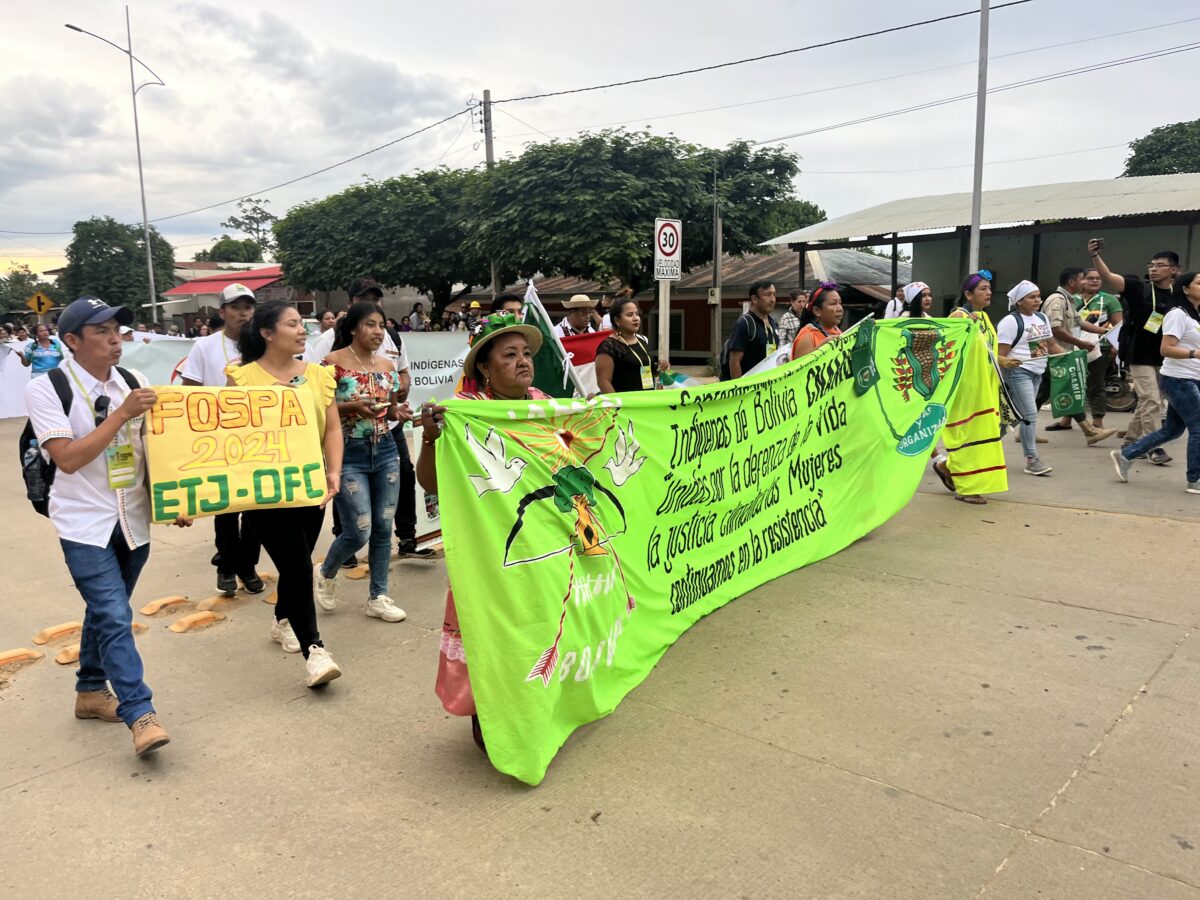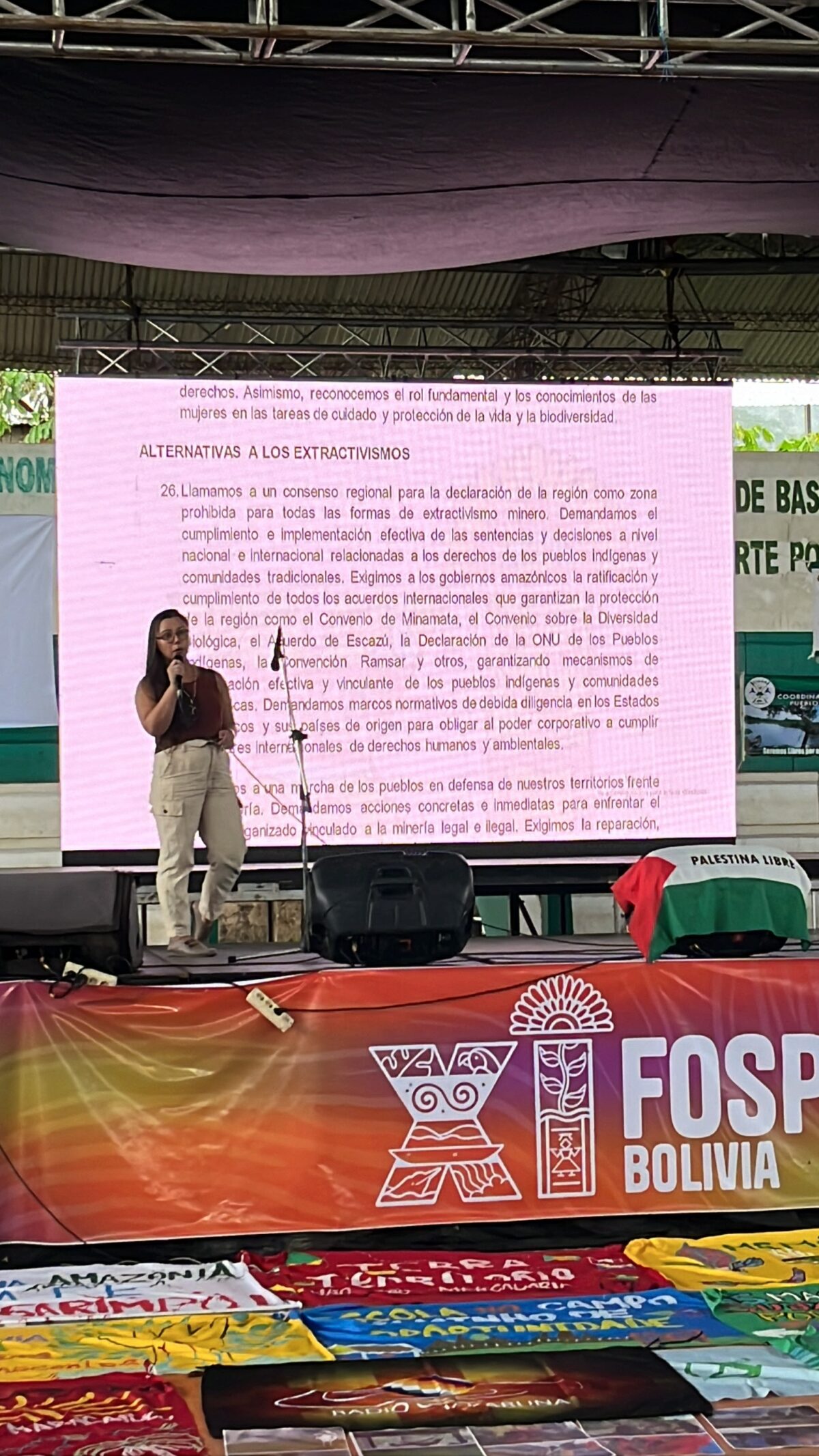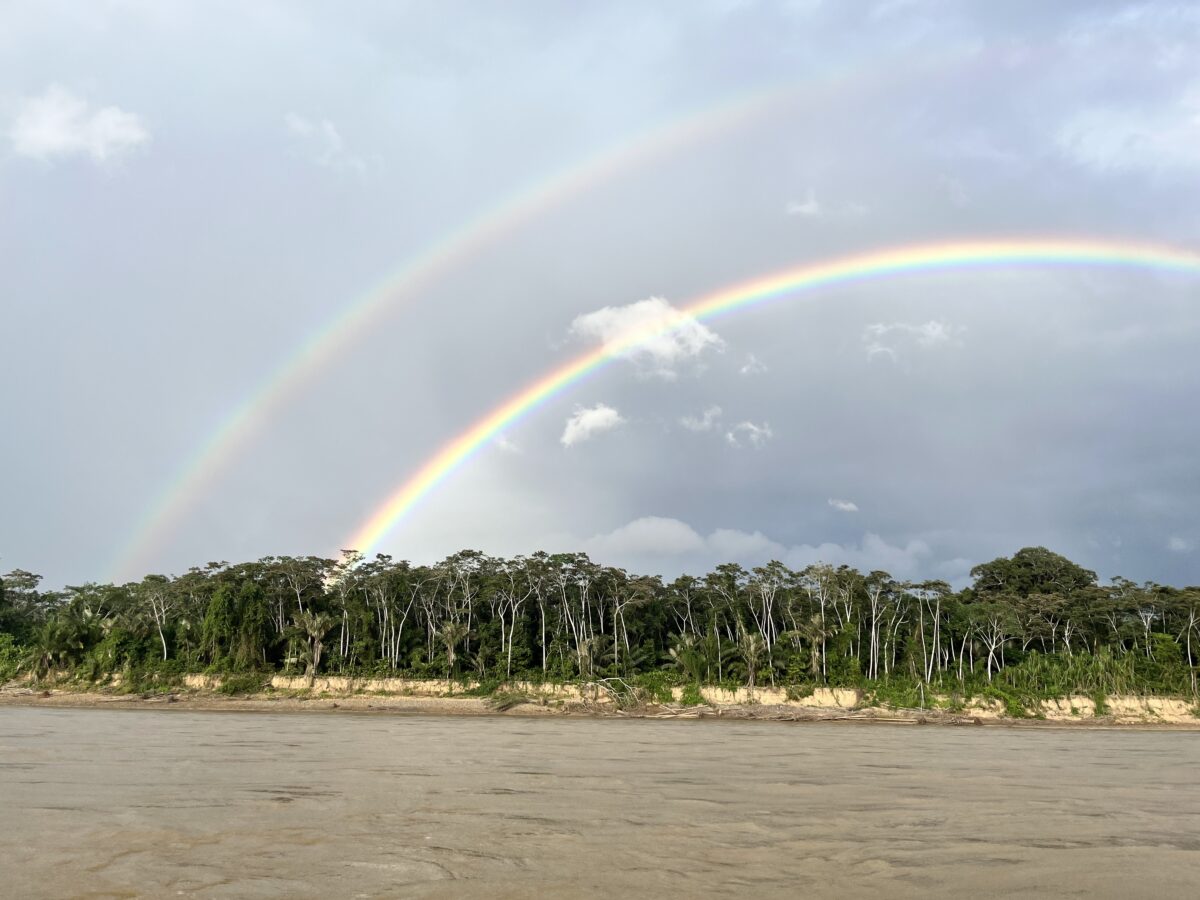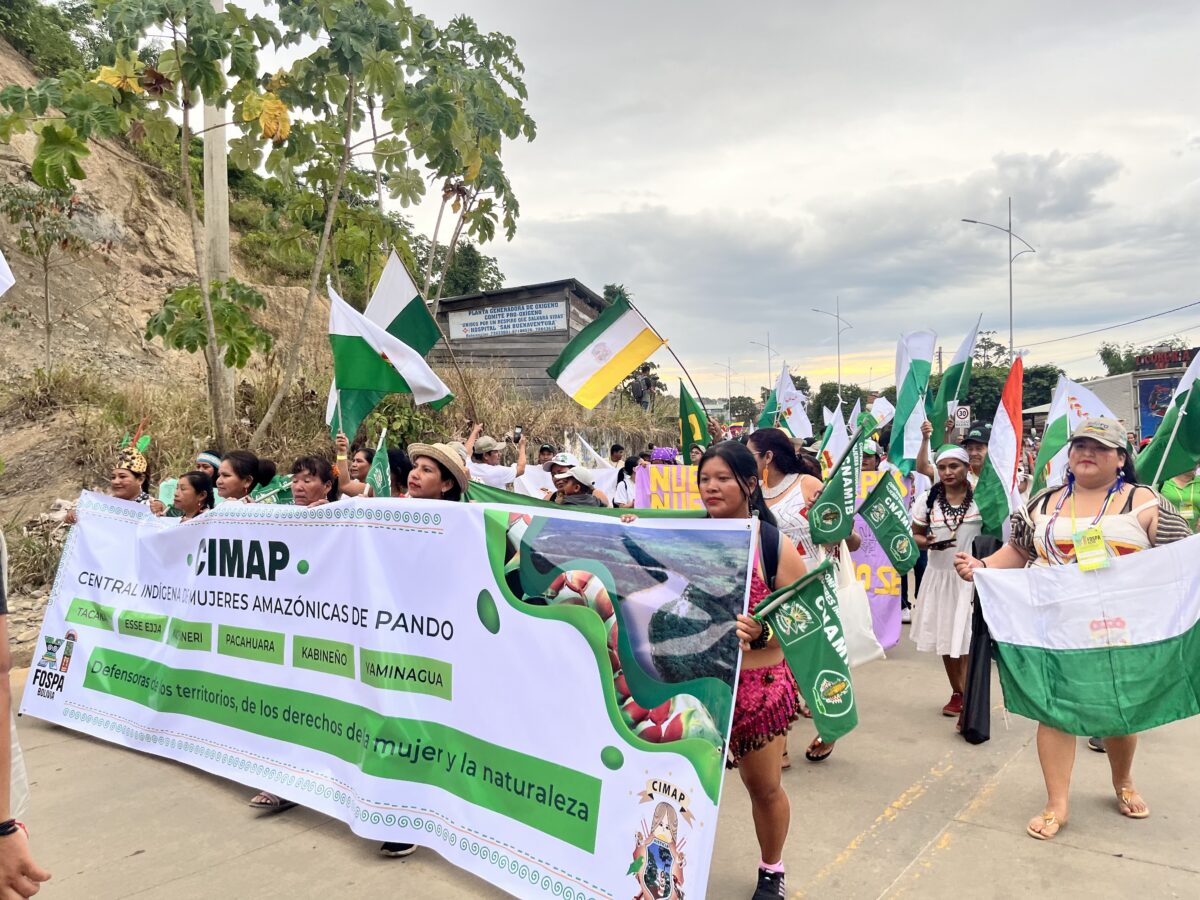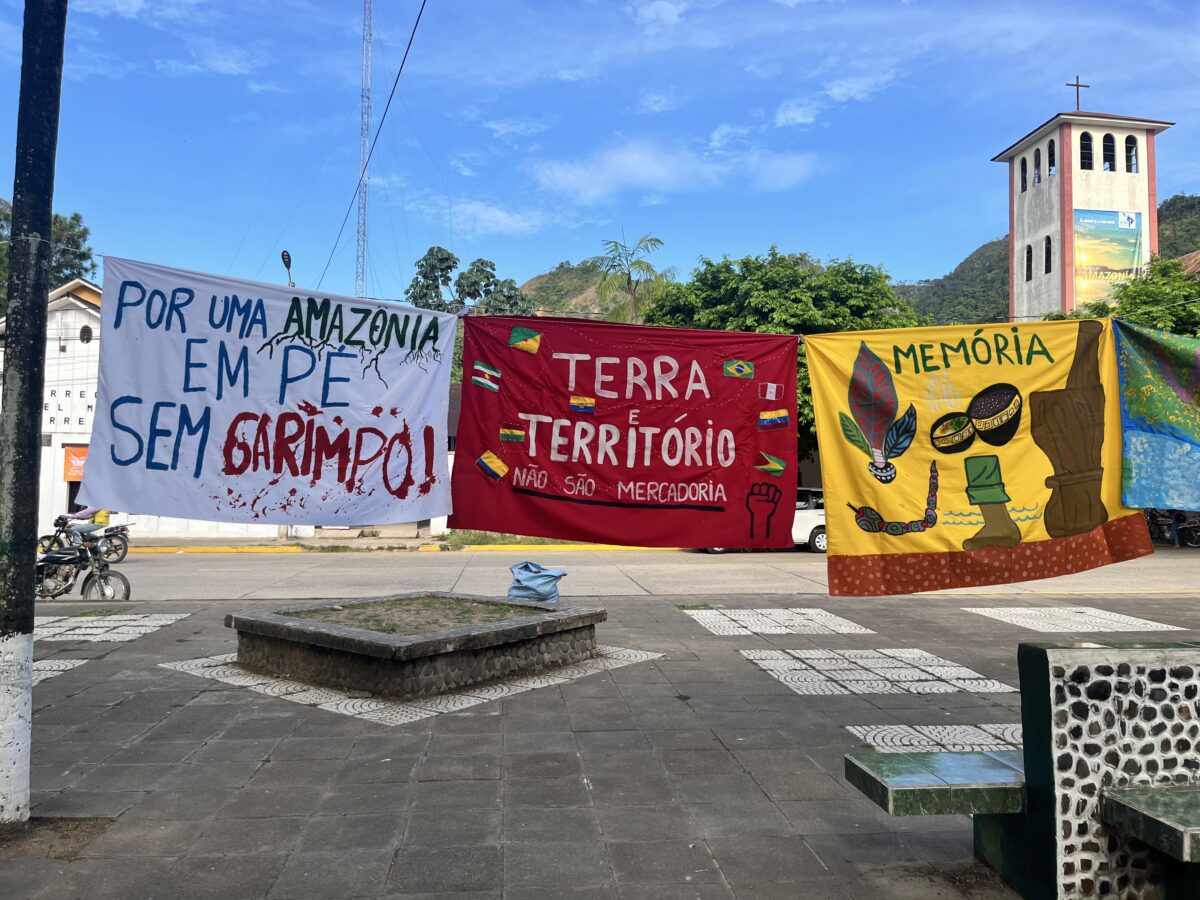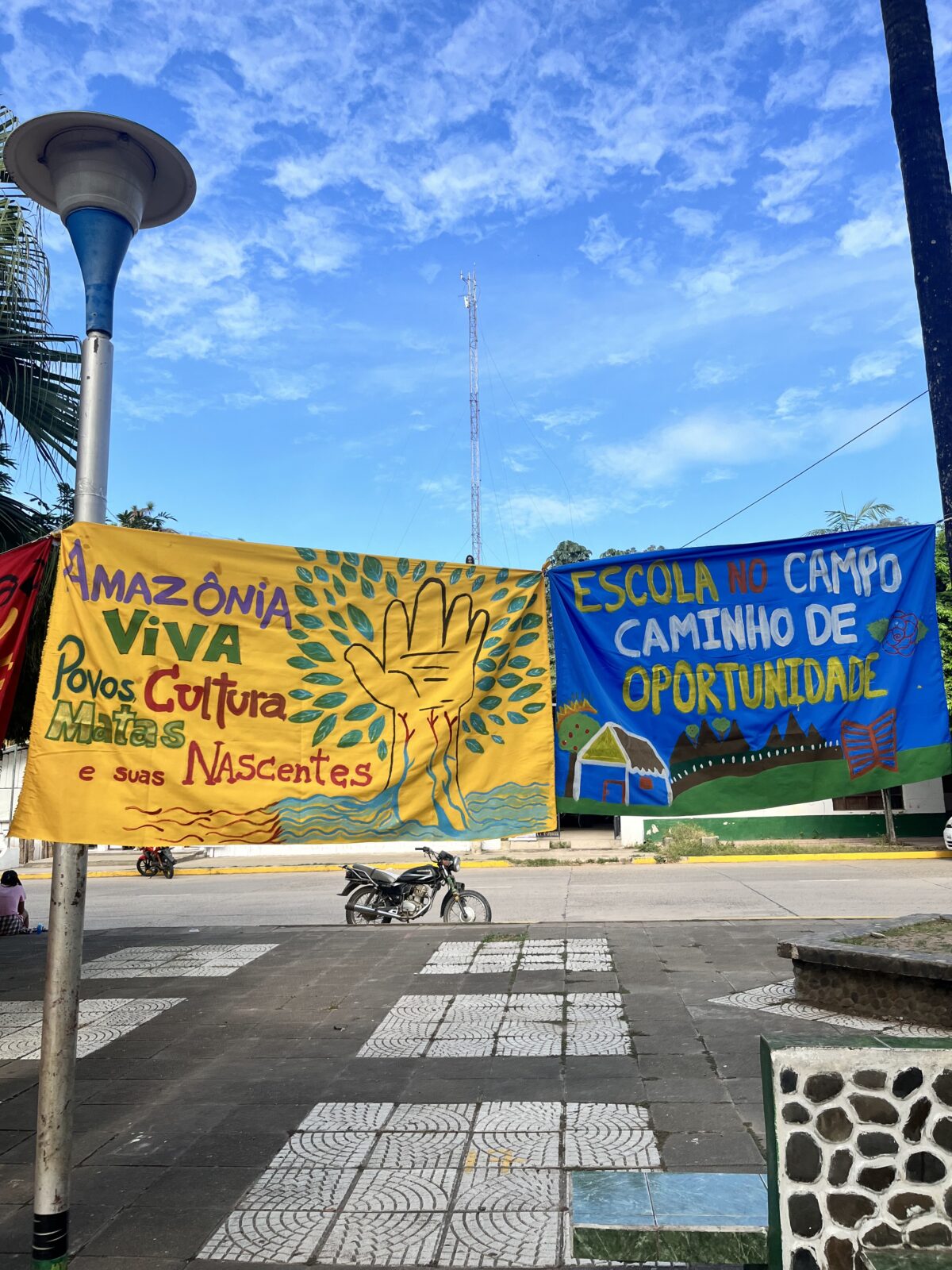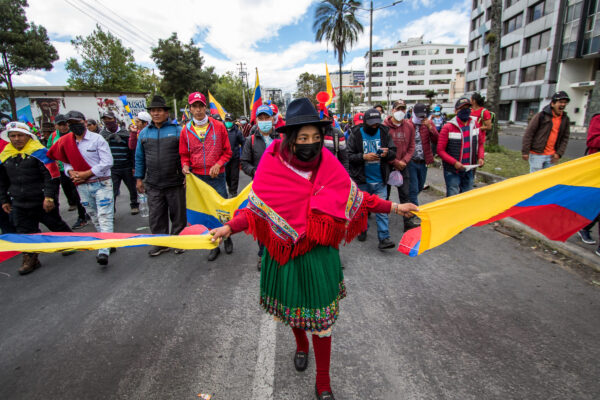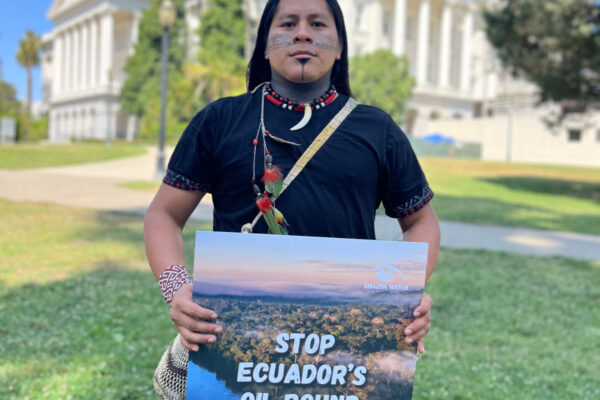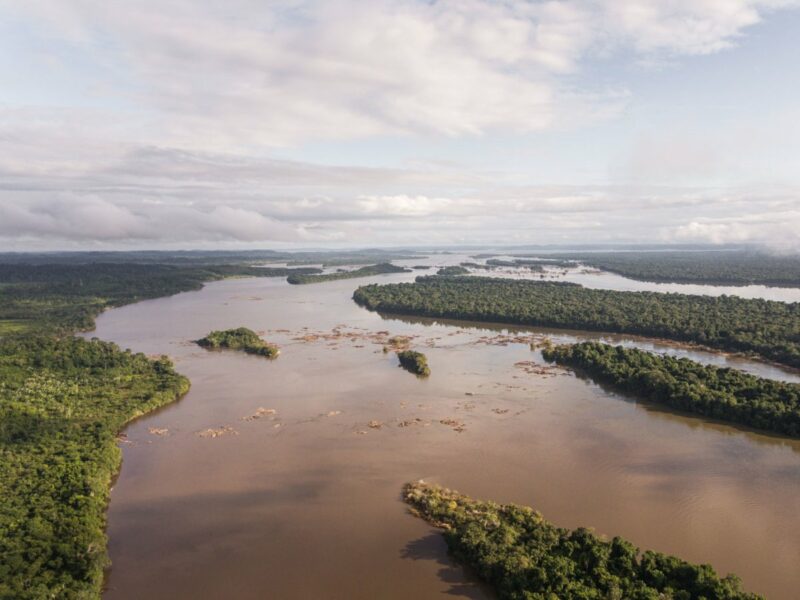This year, Amazon Watch had the privilege of participating in the 11th session of the Pan-Amazonian Social Forum (FOSPA), an autonomous and independent space formed by movements, social organizations, and Indigenous peoples from the nine countries of the Amazon basin. Being invited to this event was both an honor and a challenge, given the dramatic context of escalating violence from the mining industry in the region.
Our presence was crucial in warning about the dangers of increasing mineral dependency and extraction in the region, given the current energy transition plans proposed by the Global North at the expense of exploitation in the Global South. The most significant achievement was strengthening a Pan-Amazonian coalition for an Amazon free of all forms of mining, reinforcing the demand for the Amazon to be declared a “No-Go Zone” for extractive industries.
The sense of connection with the people and nature during the journey to the forum was profound, and the energy and hopefulness that emerged from this gathering renewed our commitment to defending these sacred places.
Our efforts culminated in the successful endorsement of our proposal to declare the Amazon a “No-Go Zone” for the extractive industry in XI FOSPA’s Final Declaration.
During FOSPA, we gathered with allies involved in our international advocacy effort #UnmaskingCanada. This initiative denounces the complicity of the Canadian government with its companies operating in Latin America. We met with allies from AIDA, Red Muqui, Moccic, CONAIE, Alianza por los Derechos Humanos Ecuador, Comitê Nacional em Defesa dos Territórios Frente a Mineração, and others. Together, we revisited common strategies and realigned our next steps for joint lobbying to declare the Amazon a “No-Go Zone.”
One key strategy is the ongoing coordination that will continue after FOSPA, ensuring our active presence in all spaces where we can bring a critical discussion about the threats of deepening mineral dependency in the current trajectory of the energy transition.
As Amazon Watch, we led discussions and facilitated plenaries and next steps for FOSPA’s Mining and Alternatives Working Group alongside a coalition of organizations. Our main objective was to denounce gold mining in the Amazon rainforest, particularly industrial and illegal gold mining, due to its connections with biodiversity loss, human rights violations, and organized crime.
During the self-managed activity on Extractivism and Corporate Impunity in the Amazon, we shared our latest Risk Assessment on Belo Sun, the Canadian company intending to open the largest open-pit gold mine in Volta Grande, directly impacting the Xingu River and its Indigenous and riverine communities. We had the opportunity to directly connect our #MiningOut campaign, which demands the removal of this project from the region. We emphasized the urgency of governmental action to protect the region and its inhabitants from the threats posed by extractive industries.
A highlight of our time at FOSPA was participating in the Grand March of the Peoples for Life and the Amazon. It was a beautiful display of love and resistance, with many community members joining the march. Holding FOSPA in a smaller Amazon city, unlike Belem last year, allowed for closer engagement with locals, who actively participated and contributed to the discussions and events.
A very important moment of our presence at FOSPA was coordinating the on-site visit to the Charque indigenous community of the Mosetén indigenous people, which has also been threatened by industrial gold mining.
Charque is one of the 23 Indigenous communities that inhabit the Pilón Lajas Biosphere Reserve and Indigenous Territory and the last Pilón Lajas community on the Beni River. The families in Charque – who for years had dedicated themselves to subsistence farming, hunting, and fishing – were surprised in 2017 by a Colombian gold company that wanted to pay them $200,000 to authorize the industrial extraction of gold from their land.
After extensive discussion and consideration, the community unanimously decided to reject the company’s monetary offers and various promises, such as schools, facilities, and aid packages. This decision was made despite the ongoing low-impact artisanal gold mining due to lack of alternative income sources and severe mercury contamination and other impacts from illegal mining near their territory.
In their statement rejecting the company’s offers, they declared that: “Their money will run out, but our territory will remain here. We’re not going to sell ourselves or our land to be destroyed.”
As several Indigenous partners from other countries in the Amazon basin were present, such as those from Guyana, Ecuador, Colombia, Peru, and Brazil, it was an emotion-packed moment of exchanging strategies and tactics on how to resist the pressure and countless promises that companies try to make to divide communities.
FOSPA 2024 was more than a forum. It was a powerful reminder of our collective strength and the importance of our ongoing struggle. It served as a crucial platform for uniting voices across the Amazon basin, reaffirming our shared vision of a future where the Amazon is not subjected to further exploitation. FOSPA highlighted the need for continued solidarity, campaigning, advocacy, and resilience in our fight for an Amazon free of mining, declared a “No-Go Zone”, aiming to protect its invaluable ecosystems and cultures.


